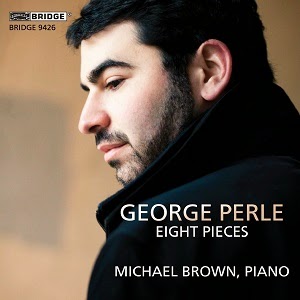Once again this week, I'll have the joy of presenting
Classical Cafe, serving up some delicious music to start your Thursday on just the right note.
The first hour features a well-known work, which is not, perhaps, aired quite so often, the Piano Concerto No. 3 by Beethoven: we have a sparkling version from the Mozarteum Orchestra of Salzburg.
 |
| Haydn and Kozeluch |
At 7 am, we'll have an oboe concerto that wasn't written by Joseph Haydn, though many people think it was. It was, in fact, the work of Johann Antonin Kozeluch.
We'll also enjoy a Piano Trio by Josef Rheinberger.
After 8 o'clock, we'll hear a musical parody by Dmitri Shostakovich all about the challenging housing conditions in the Soviet Union of the 1950s in the Cheryomushki Suite, and we'll end with the Concertone, which means big concert or concerto by Mozart.
There are plenty of delicious treats in store in the
Classical Cafe, this Thursday morning. I hope you'll join me.
_____________________________________________________________
On
Vivace this Friday, the first hour features some peaceful music: the String Octet by Mendelssohn and a symphony by Vanhal.
At 7 am, I'd like to introduce you to the music of Giuseppe Antonio Capuzzi, a largely-forgotten Italian violinist and composer who was born on August 1, 1755. We'll hear his delightful Concerto for double bass and orchestra in D-Major.
 |
| The Capuzzi concerto and Mr. Albrechtsberger |
After that, we have another equally delightful work: the Partita in C-Major for harp, flute and cello by Johann-Georg Albrechtsberger, who was a classmate of Michael Haydn, and taught music theory to Johann Hummel, Ludwig van Beethoven and Franz Xaver Mozart.
Austrian composer and organist Hans Rott also has a birthday this Friday and of course, we'll celebrate it, with his Pastoral Prelude in F Major. We'll round out the hour with music of Gottfried Heinrich Stolzel.

The great horn player,
Hermann Baumann (right), celebrates his 80th birthday this Friday. Before the champagne is opened, he will join us to play the Mozart Horn Concerto No. 2.
And we'll end with one of those enchanting guitar and piano duos by Ferdinando Carulli.
I hope you'll join me Thursday and Friday mornings, 6-9 am, to start your days with that touch of je ne sais quoi, here on
WTJU-Charlottesville.

















































